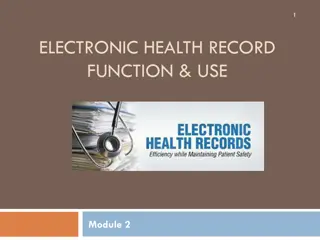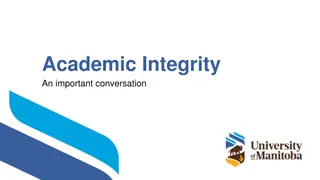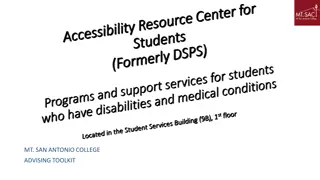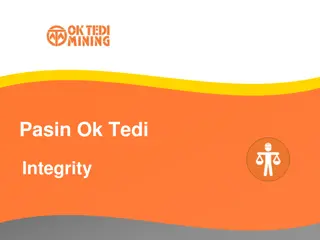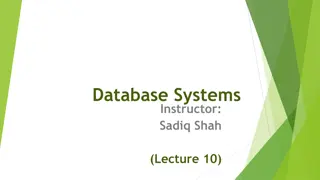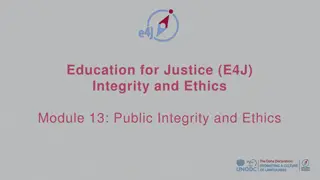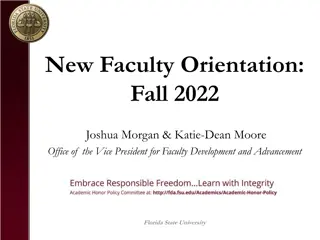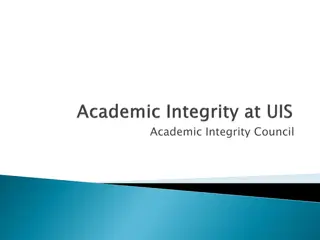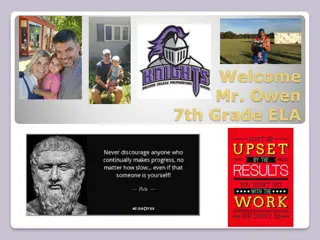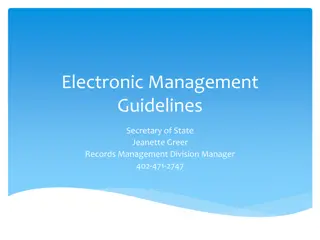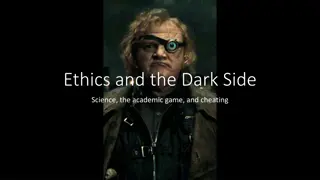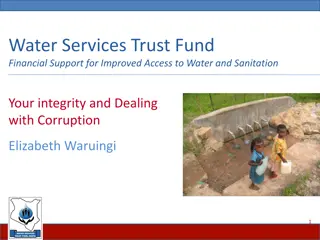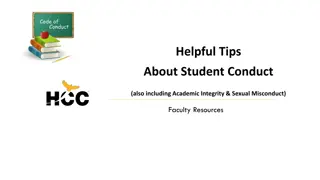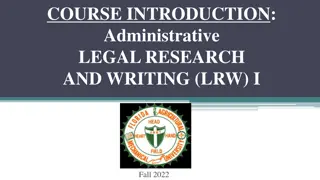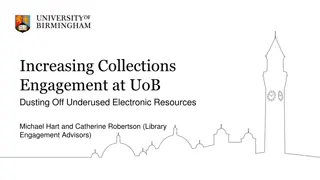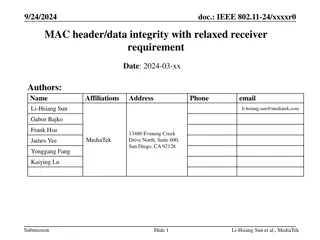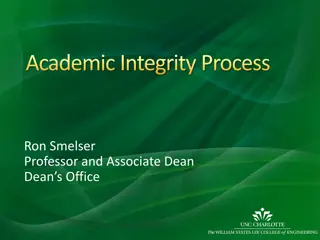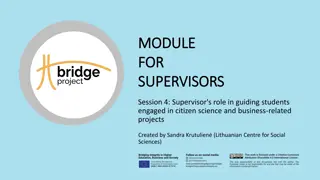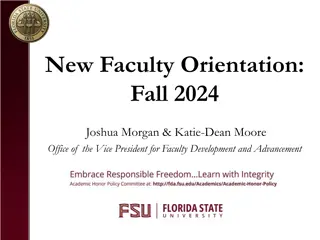Enhancing Academic Integrity Through Access to Electronic Resources and Turnitin
Explore the importance of literature search, access to information resources, search strategies, and plagiarism prevention in academic research. Learn about sources of information, academic search engines, access tools, and how to analyze Turnitin reports effectively.
Download Presentation

Please find below an Image/Link to download the presentation.
The content on the website is provided AS IS for your information and personal use only. It may not be sold, licensed, or shared on other websites without obtaining consent from the author.If you encounter any issues during the download, it is possible that the publisher has removed the file from their server.
You are allowed to download the files provided on this website for personal or commercial use, subject to the condition that they are used lawfully. All files are the property of their respective owners.
The content on the website is provided AS IS for your information and personal use only. It may not be sold, licensed, or shared on other websites without obtaining consent from the author.
E N D
Presentation Transcript
UNIVERSITY OF NIGERIA, NSUKKA COLLEGE OF POSTGRADUATE STUDIES Access to Electronic Resources and use of Turnitin for Similarity Check: A Vehicle for Expanding the Frontiers of Academic Integrity Dr S C UKWOMA scholar.ukwoma@unn.edu.ng
OUTLINE INTRODUCTION Sources of information Academic Search engines Access tools ELECTRONIC RESOURCES SEARCH STRATEGIES Simple search Systematic search Snowballing following a thread Refine your search Evaluate your search Search limits- eg google scholar platform Advanced search PLAGIARISM Turnitin
GOALS AND OBJECTIVES By the end of this presentation students should be able to: 1 identify the online resources available at Nnamdi Azikiwe library 2 mention the search strategies to adopt in searching for information resources 3 know how to analyze their Turnitin report 4 identify some steps to take to avoid plagiarism
1. INTRODUCTION For a good research work literature search is important, we need to stand on the shoulders of giants as it will help us to see far. We can achieve these by reading their research works which can be in print or electronic format. Access to information resources is important this can be achieved by knowing the available databases and how to navigate through them. Therefore as a researcher, know how to use the information resources; know when to paraphrase, cite literatures used and reference the sources used in your research work.
Sources of information Secondary sources- interpretation of primary sources e.g. Academic books, Review articles, journal articles Tertiary sources- facts and description of the main topic e.g Encyclopedia, bibliographies, indexes etc. Primary sources of information -original ideas, e.g Interviews, original research experiments These are relevant sources you can consult as a researcher in writing your research work. In writing your research report, it is important you know where to access information resources, the types of materials you need etc.
Academic search engines Google Scholar Microsoft Academic Base Core Science .gov Semantic Scholar Baidu Scholar RefSeek (Williams, 2020)
Access tools These are services and platforms used in locating different types of information resources- Some access tools are not free while some maybe attached to a Database eg. Library catalogues- covers library collections eg books, serials, any other materials the library subscribes to. Repositories- contains institutions research output eg. Articles, conference proceedings research data etc. Indexes- bibliographic citation index used in retrieving quality information resources Abstracts- https://www.unn.edu.ng/libraries/
These are resources that are accessed online. Some of them maybe open access while some are subscription based Open access resources are those we can access without payment. Subscription based resources you can only have access to the resources through your institution or you can pay for it yourself For some of these resources that are paid for there authentication is necessary in order to access them i.e username and password. Or it may be IP based Electronic Resources
What next ? To have a grip of your research, Knowledge overview of your research topic is important You need to read through some tertiary sources of information like, encyclopedia, professional publications, book reviews, etc. Then narrow your topic by asking yourself; what do i want to find out? Where? Who? Why do I want to do this work? And then how? These questions will help to create a guide.
Performing a simple search Is a quick first search Good when searching for broad topic You can search by entering a single phrase The title of the journal Can search through library catalog, google scholar
Search Strategies Simple search using either the keyword, subject or title
Systematic search Is more comprehensive To identify all relevant studies on your research topic To organise and tackle the search process in a structured manner Know the key concepts You choose your, database, keywords or search terms and the search method which should reflect in the result. You can build the research query, Boolean operators, advanced search techniques etc. Its usually done for a complex piece of research that requires synthesizing the publications on a particular question
Snowballing following a thread It helps you to retrieve information resources quickly You can start with your key publication based on your research subject The reference in that publication will lead you to other important information resources With this method other related publications can be retrieved.
Refine search results To refine your search results know that there is no perfect result therefore; Think critically based on your research focus, the retrieved information are they relevant for my purpose Will they answer my questions Your can filter your results by using some search criteria, such as relevance, recency, geographical scope etc. This helps to evaluate your search results and to retrieve appropriate information.
Improve your search or refine your result using search filters Truncation Enter the root word eg child* takes care of child, children, childlike, childhood, It broadens your search by various word endings Phrase searching - Limiting search technique The terms must be close to each other in the order its presented. It is achieved by using quotation Njoku Clay N/B always check through the database help menu some may use different symbols*
Wildcat It takes care of irregular plural or American and British spellings Labour, labor labo?r Woman wom?n
Evaluate your information resources Accuracy Objectivity Authority Coverage Currency Who is the author Is the information- based facts Is it published in a peer reviewed journal How objective is the information Is the coverage basic or comprehensive Did they provide any link that explained the coverage What is the depth of the information The date of publication Is the author affiliated to an institution or organization Educational background or experience Is there any political under tune The last update on the website When was the last update Is it informing or persuasive What of the links are they up to date Area of specialization How accurate is the information on the web page Any editor or reviewer The tune of the language Are you satisfied with the information Do the links point to exiting links Track record of research output https://www.research4life.org/training/ Visibility
Some Tips Form the habit of reading through literature you downloaded. Use reference management tools eg Mendeley, Zotero etc. Do not use copy and paste is not a good practice Printing out the document could help you read the works properly. Always acknowledge sources cited in your work, remember you are standing on the shoulders of giant.
Plagiarism Plagiarism is a conscious and deliberate appropriation of an intellectual work that belongs to someone else. Unethical use of information. (Leit o, H, Sim es, M, De Almeida & Mart nez- lvia, D, 2019) Students cheat fellow students.
Side effects of plagiarism In some cases it affects your job. Withdrawal of articles/publications. Academic discipline (disciplinary committee). Payment of fine or imprisonment awaits the offender. Creates a bad record.
How to avoid plagiarism Develop good writing practice. Learn to cite properly and correctly. Direct quotation/ Paraphrase. Summarize. Avoid copy and paste. Ensure you reference all ideas you got from a book, internet source, etc.
Turnitin Is a tool to check the originality of research works of students and academics. It helps to stay away from plagiarism Many universities in the world has adopted it to ensure academic integrity in their institutions and ensure researchers write original works www.turnitin.com
Overall similarity index showing material overlap Individual source index- helps in interpretation Source view showing overlap
Conclusion The skills you acquire today will go a long way to help you not only for the successful completion of your Masters and Doctoral programmes but for lifelong learning. What you publish today may speak volumes about you tomorrow.
Thanks for Listening Time to Engage



